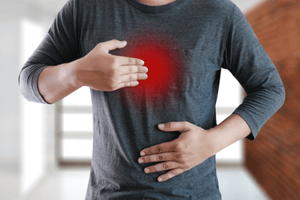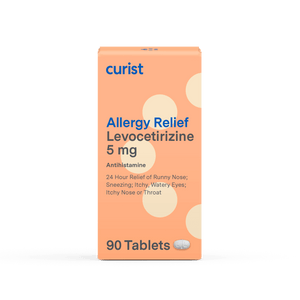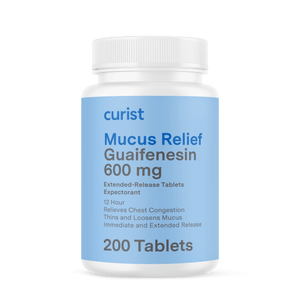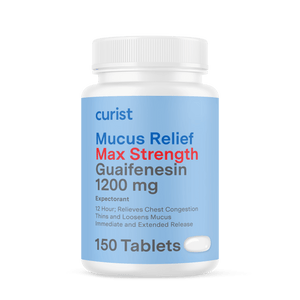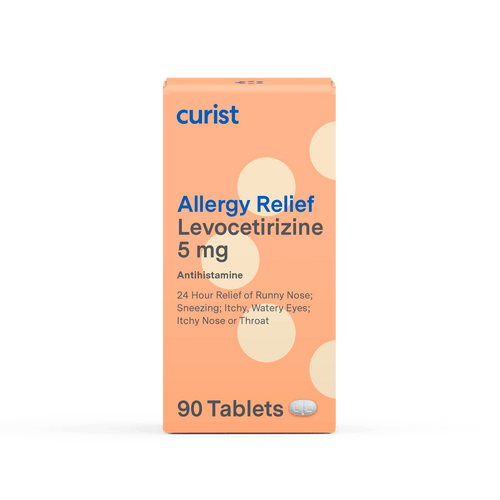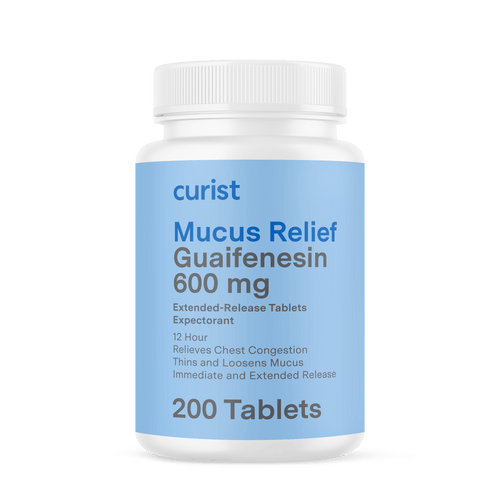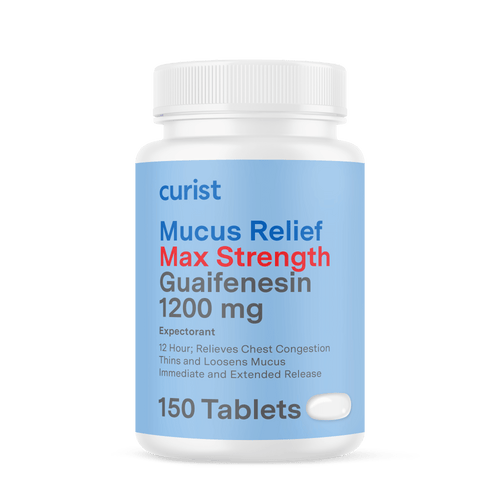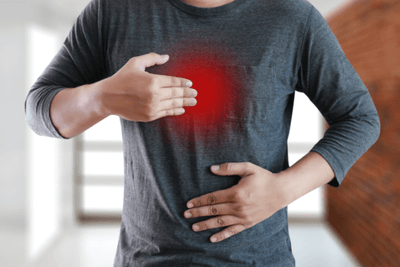by Dr. Waverly Yang, Pharm D, Curist Pharmacy Advisor and Dr. Marc Goldstein, MD, Curist Medical Advisor.
Curist delivers over-the-counter medicines to your door at a fraction of the price of traditional brands. We hope everyone stays safe and healthy during this time.
Is It Okay For Me to Self-Treat For Coronavirus (COVID-19) Symptoms At Home?
According to the World Health Organization (WHO), about 80% of people who have the coronavirus (COVID-19) can recover from home without a hospital stay. If you begin to show symptoms of coronavirus (COVID-19) or have come in contact with someone who has tested positive for the coronavirus, it’s important you start a 14-day quarantine and consider getting testing (SARS-CoV2 PCR nasopharyngeal swab testing) about 5-8 days after exposure. For milder cases of coronavirus (COVID-19), many people will consult with their doctors then ultimately choose to quarantine and manage their symptoms from home without testing. If you have concerns about your symptoms, call your doctor first before visiting their office in person. However, if you are experiencing trouble breathing, cough, persistent pain or pressure in the chest, new confusion, are unable to stay awake, or have a bluish face or lips, seek emergency medical care immediately.
Although there aren’t any medications that can cure a coronavirus (COVID-19) infection, there are medications you can take to treat relatively mild symptoms until the infection goes away on its own.
What’s The Best OTC Treatment For Coronavirus (COVID-19) Fever, Headaches, and Body Aches?
The best way to treat your fever, headaches, or body aches is with pain relievers, like acetaminophen (Curist Pain Relief). Despite early concerns regarding the safety of NSAIDs like ibuprofen for coronavirus (COVID-19) treatment, WHO experts have concluded that there isn’t enough evidence to deem ibuprofen unsafe unless you already have a condition that precludes the safe use of NSAIDs.
For more information on using pain and fever reducers to treat your coronavirus (COVID-19) symptoms, check out our articles:
- Migraines, Headaches, and Coronavirus
- Acetaminophen & Tylenol for Coronavirus
- Ibuprofen & Advil for Coronavirus
Since having a fever can lead to increased dehydration, make sure to drink plenty of water and other clear fluids to stay hydrated. Since drinks with caffeine like coffee, tea, and some sodas are diuretics, they don’t do a great job of rehydration. If swallowing fluids is hard because of a sore throat, take small sips of water frequently to make sure you’re getting enough fluids.
What’s The Best OTC Treatment For Coronavirus (COVID-19) Cough and Sore Throat?
If you need help keeping your cough under control, over-the-counter medications like dextromethorphan (Robitussin, Delsym) are great options. Guaifenesin (Curist Mucus Relief) may be especially helpful for when you have wet coughs and chest congestion. Throat lozenges and cough drops can help with soothing a sore throat and keeping your throat clear.
If you’d like to learn more about managing your sore throat or other throat symptoms, take a look at our articles on distinguishing coronavirus (COVID-19) symptoms versus symptoms from colds or allergies:
- Sore Throat vs Scratchy Throat vs Dry Throat vs Itchy Throat vs Itchy Roof of Mouth
- Itchy Ears
- Itchy Nose
What Are The Best OTC Treatments For Sneezing, Runny, and Stuffy Nose?
Antihistamines and decongestants are going to provide your nose with the quickest and most effective relief. Antihistamines like levocetirizine (Curist Allergy Relief) and nasal steroid sprays like fluticasone propionate (Curist Allergy Nasal Spray) can effectively treat runny noses, sneezing, and nasal congestion. Over-the-counter decongestants like pseudoephedrine (Sudafed) can also help with a stuffy nose. Pseudoephedrine may not be appropriate for everyone, especially for those with high blood pressure, so talk to your doctor or pharmacist if you have any preexisting medical conditions.
Need more advice on getting relief for symptoms like sneezing and an itchy nose? Want to better understand whether these symptoms could be linked to coronavirus (COVID-19)? Take a look at our articles on Itchy Nose: Coronavirus, Allergies or Cold?, Coronavirus and Sneezing, and Uncontrollable Sneezing.
What Can I Do to Prevent the Spread of Coronavirus (COVID-19) to Others?
If you’ve tested positive for coronavirus (COVID-19) and are infected, it’s important to isolate. If you think you may be infected from a known exposure, it’s important to quarantine to prevent the spread to others. The CDC recommends staying home, avoiding public areas, and self-quarantining in a designated room away from other people and pets. Wash your hands frequently, make sure to disinfect high-touch surfaces frequently, particularly if you share a home with others, and wear a mask. We have a whole article on how to clean your home to reduce the spread of COVID-19 (Cleaning vs Disinfecting: Coronavirus Edition). If you are not experiencing any symptoms and/or have recently recovered from COVID-19, the CDC highly recommends everyone who is 5 years and older to get a COVID vaccine to get better protection for yourself and your loved ones.


